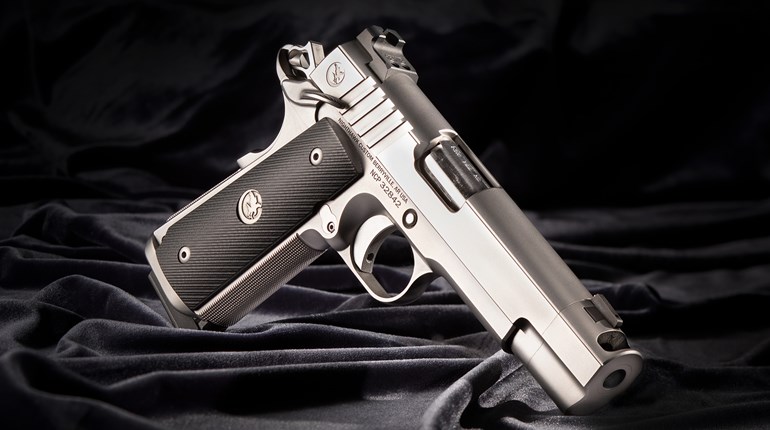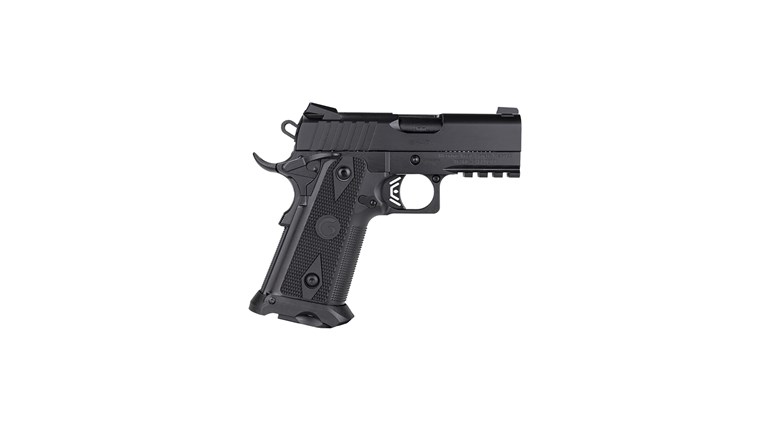
The first U.S. military surplus firearms released by the government since the early decades following WWII is now a possibility. The recently passed National Defense Authorization Act of 2016 allows the Secretary of the Army to annually transfer up to 10,000 surplus M1911/M1911A1 pistols to the Corporation for the Promotion of Rifle Practice and Firearms Safety (CMP) for subsequent sale to competitors and collectors.
However, the present anti-civil rights administration, coupled with the upcoming presidential election year that has made “gun control” a major political party issue, is likely to delay transfer of the milsurp pistols. The CMP declined to comment on the matter or to discuss plans for sales to the public or how sales may impact pistol competitions.
“None of us are at liberty to speak to any of those issues at this point, from top down,” said CMP spokesman Steve Cooper. “Since the whole program is in the hands of the Secretary of the Army, we will await their move.”
The milsurp pistols are a potential boon to CMP’s as-issued pistol matches, styled on traditional NRA precision (formerly bullseye) pistol competition. Intended to get more shooters involved in pistol marksmanship, the as-issued competition permits only unaccurized semiautomatic military/police pistols or commercial equivalents.
What is it?
The National Defense Authorization Act of 2016 (NDAA 2016) assigns $607 billion for everything military, from painting Navy ships to buying the newest electronic weapons technology. President Obama vetoed the Act in October 2015, but he finally signed it weeks later after lawmakers cut $5 billion from the bill, HR 1735.
The potential public sale of 10,000 surplus pistols is a veritable mote in an enormous package of much larger national defense budgetary concerns with significant political ramifications. Obama’s comments on his initial veto, in fact, made no reference at all to the surplus pistols, objecting instead that the bill failed to meet his desire for budget reforms and that it failed to close the Guantanamo Bay terrorist detention facility, one of Obama’s campaign promises.
 What does it say?
What does it say?
Section 1087 of NDAA 2016 adds milsurp M1911/M1911A1 pistols, spare parts and accessories to the milsurp M1 Garand and .22 caliber target rifles CMP already sells to eligible citizens. It authorizes the Secretary of the Army to carry out a one-year pilot program transferring a maximum of 10,000 milsurp pistols to CMP. Within 90 days of initiating the program, the Secretary must submit to Congress an interim report that includes the number of pistols transferred and “information on any crimes committed using firearms transferred under the pilot program.” The reference to crime is a first for milsurp sales and is clearly politically motivated.
Assuming Congress approves the required reports—also new to milsurp transfers—the Army may release 10,000 pistols annually until exhausting the surplus. NDAA 2016 specifies M1911/M1911A1 pistols only, without reference to service revolvers. It also specifies that pistol sales will require background checks and that CMP “shall obtain a license as a dealer in firearms” and maintain “acquisition and disposition records”—apparently references to standard FFL procedures followed by firearms retailers which, Cooper said, CMP already practices.
What’s next?
An important point is that the Act only authorizes actions and expenditures, it does not require the Secretary of the Army to transfer milsurp pistols to CMP. A reasonable expectation, given Obama’s history of anti-civil rights rhetoric against the Second Amendment, is that, as Commander in Chief, Obama will direct the Secretary to not transfer the pistols during the remainder of his presidency. Possibly some other political expediency might prompt Obama to instead simply distance himself from a Secretary decision to transfer the pistols.
As a non-profit organization operating under a government charter, CMP is in an awkward position, caught between its federal mandate to actively promote citizen marksmanship while the government, under the present administration, ardently opposes the task it has assigned CMP. The CMP has asked the public not to email or call with questions regarding the milsurp pistols for now, and appears to have adopted a patient “wait and see” attitude while quietly preparing for a positive outcome.


































